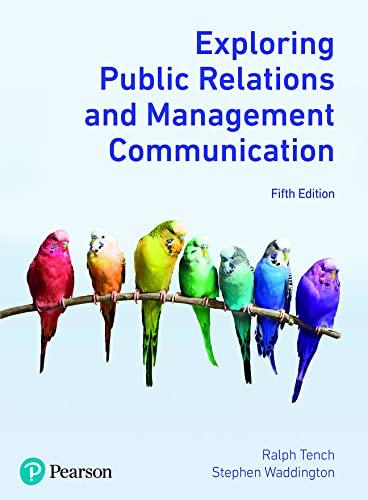Answered step by step
Verified Expert Solution
Question
1 Approved Answer
Carol and Jake, both aged 2 5 , have been operating as sole traders for the past tyears, with net profits of 1 5 ,
Carol and Jake, both aged have been operating as sole traders for the past tyears, with net profits of and pa respectively. They have decided to bring their separate businesses together as a partnership and move into a new building close to where they work in Northern England.
The proposed building consists of three floors, of which twothirds is a flat that they propose to live in while they expand their client base. They have both previously owned flats in the local area but do not currently own any property.
Each has brought to the business. The entire property is on the market for and they have made a successful offer of with a deposit of
They project that, as a result of combining their businesses, the coming year will generate gross profits of for the partnership. From this, they expect to be able to draw each, which equates to the anticipated net profit after settingup costs.
They project a minimum pa increase in net profits over the next five years.
Carol and Jake are prepared to take an element of investment risk to achieve capital growth, with a view to repaying the mortgage and building up excess funds for future use.
Marcus, their intermediary, has recommended a mortgage package with Steadfast Finance, which has provisionally offered a variable rate of over the standard rate of The offer is on an interestonly basis over years.
Carol and Jake are keen to invest capital where they can, while retaining accessible funds for emergencies and potential business expansion. The lender will pay Marcus a procuration fee of of the loan.
Additionally, Carol and Jake want to consider protection against the inability to pay the mortgage due to either of them suffering longterm sickness or an accident.
When assessing Carol and Jake's income, the lender will primarily consider:
a the previous owner's bank statements
b their accountant's projections.
c their last two years of selfassessment tax returns.
d their personal bank statements over the last year.
From the information Carol and Jake have supplied, the lender will be particularly concerned to ensure that:
a at least of turnover is in respect of new clients.
b expenses relate to no more than of turnover.
c no capital allowances have been included
d personal drawings have not exceeded net profits.
Which of the following joint life assurance policies would be the most appropriate to protect the mortgage?
a Convertible term assurance.
b Decreasing term assurance.
c Level term assurance.
d Mortgage protection assurance.
When assessing affordability, council tax for the property will fall into which category?
a Basic essential expenditure.
b Basic qualityoflife expenditure.
c Committed expenditure.
d Voluntary expenditure.
In respect of the most suitable form of income protection for Carol and Jake to consider, which of the following is true?
a Benefits will typically be limited to of their respective income.
b Benefits will be paid for a maximum of five years.
c The policy may include a proportionate benefit clause.
d The policy will be reviewed annually.
With regard to repaying their potential mortgage debt, the products that most closely meet Carol and Jake's stated criteria are:
a personal pension plans.
b SelfInvested Personal Pensions.
c stocks and shares ISAs.
d unitlinked endowments.
Upon completion of the purchase, any stamp duty land tax SDLT payable will be:
a debited from Carol and Jake's business account and transferred to the HM Land Registry
b paid by Carol and Jake's solicitor and reclaimed from them as a disbursement.
c paid directly to HMRC by Carol and Jake.
d paid to the vendor's solicitor for onward payment to HMRC
Which of the following must Marcus provide to Carol and Jake at their first meeting?
a A client agreement.
b A European Standardised Information Sheet ESS
c A suitability report.
d Initial disclosure information.
In respect of Carol and Jake's mortgage application, the MCOB rules:
a apply only if the lender states that the application is regulated.
b apply in full.
c do not apply.
d only apply in respect of the residential part of the property.
Under the MCOB rules regarding Marcus's procuration fee, before a mortgage application is submitted, he must declare to Carol and Jake:
a that he will disclose the exact amount at their request.
b that his fee is over
c that his fee is under
d the exact amount he will receive.
Step by Step Solution
There are 3 Steps involved in it
Step: 1

Get Instant Access to Expert-Tailored Solutions
See step-by-step solutions with expert insights and AI powered tools for academic success
Step: 2

Step: 3

Ace Your Homework with AI
Get the answers you need in no time with our AI-driven, step-by-step assistance
Get Started


